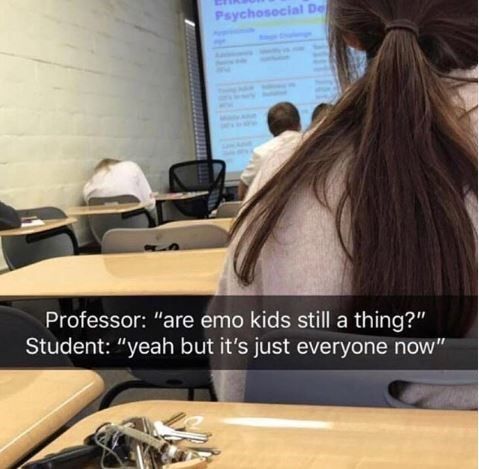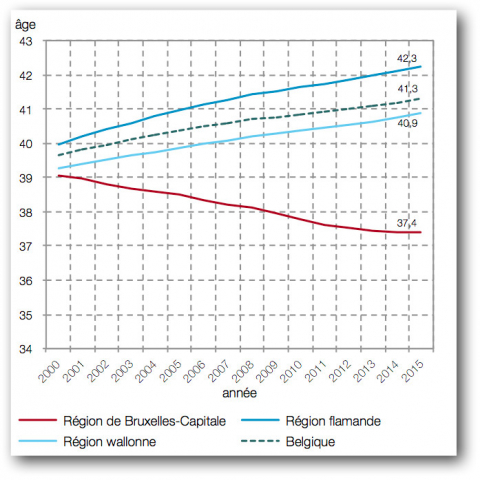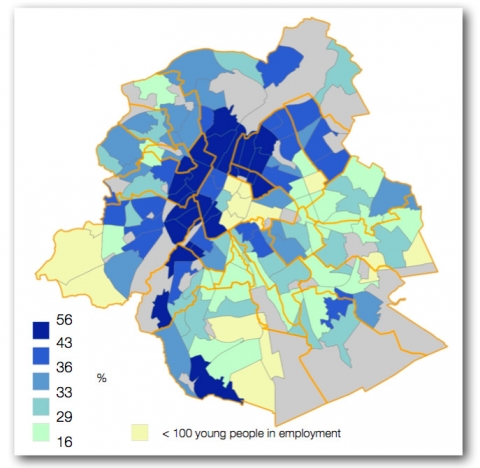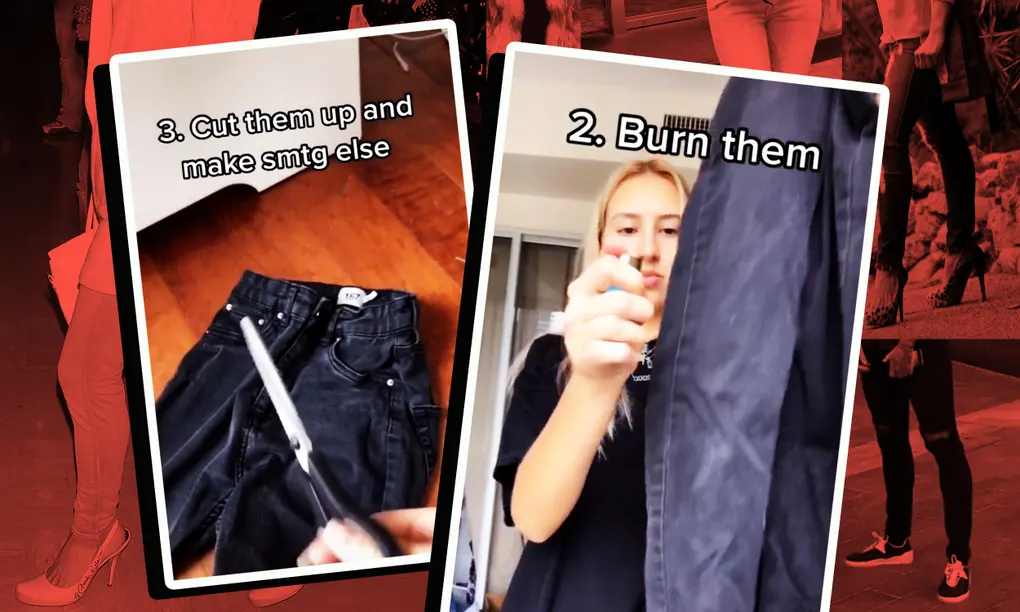#Question3 #Youth #MentalHealth #Technology #2021
Disclaimer: This article is a result of expert interviews, desktop research, and chat with the people of Brussels around the research question ‘How will young Brusselèirs bond in 2035?’. The aim of the research is to map the current state and to analyse the trends. We will use it as a base for our futures stories.
CONTENTS
👶 Young people of tomorrow
🧑🎤 Young people of today
👭 Healthy relationships for young
📱 Global evolutions that might influence the way we bond
🔮 Futures?
Young people of tomorrow
Dear Brussels,
You are the youngest capital in Europe and the youngest region of Belgium.
Did you ever think of the young people of the future in our city?
The young people of 2035 in Brussels, that means Generation Alpha, the babies of today, the kids of the Millennials, the younger siblings of Generation Z, … what do we know about them compared to previous generations?
- They will be more
- They will be more diverse in ethnic and cultural background
- Their parents have them when they are older
- They will grow up in smaller families
- They will be the most educated, digitally savvy and most globally connected generation so far
- They will live longer
To get an idea about being young in our city, let’s have a look at the young people of today in Brussels.
Brussels youngsters are connected to their peers, their neighborhood and their ethnic origin. The diversity within the generation is very big and there is a big difference among young people living in different neighborhoods.
Most of them feel disconnected from politics and their city. Many feel left out on the one hand and stigmatised by the media and the police on the other hand. This is often linked to their ethnic background and the municipality they live in.
In general, one out of 4 young Belgians is affected by anxiety or depressive symptoms, twice as many as before the pandemic. In June 2021, one out of 6 young Belgians reported that they had considered suicide during the last 12 months.
So that’s Brussels. And what about youth in general?
Young people of today
They are a Burnout Generation. On the one hand there are more and new mental health issues (bigorexia and climate anxiety for example). On the other hand, there is more openness about the topic ( Stromae sings about it , Angèle talks about her struggles on Netflix ) as well as efforts to cope with it. Games, such as Depression The Game, that teach you to empathize with depressed people for example, or apps, like MOODFIT, that help you to think more positively.

Generational Battles. The mediatisation of generational thinking and intergenerational challenges led to a finger pointing from one generation to the other, connections with older generations are not that easy for Gen Z. Gen Z blames the babyboomers for ruining the planet, they make fun of Millennials wearing skinny pants, and they felt stigmatised when some of them misbehaved during the pandemic.
They have Hybrid Social Lives and are social with whatever interface, boosted by the pandemic. They make friends on Discord, they rebuild their school in Minecraft to hang out there, they make friends during VR cyber raves, watch a virtual concert of Zwangere guy or see Travis Scott perform in Fortnite together with 12.3 million others. Cutting off the analogue led also to more awareness around online and offline parts of life, though. They go into the mountains, skate, bake bread and take care of plants.
They are hard to grasp Multitudes. Conscious identity formation and the diversity of online and offline expression platforms led to a complex whole of layers of the self. Today it goes further than just having a rinsta and a finsta. They show up differently, talk differently, value different things according to the platform, or the niche corner of the platform where they are (because yes, besides Straight TikTok with dances and comedy, there is DeepTok with weird absurd things about for example beans and frogs or fake accounts pretending to be department stores).
The Good, The Bad And The Debate. In times that wokeness and activism prevails and there is no shared moral framework, judging and policing becomes part of daily life. Opinions glue and divide. Cancel culture is everywhere.
Fluid Relationships are the norm, experimenting with and redefining relationships and partners happens with a never seen openness. They are explicit about dating for money and BDSM preferences, they earn money on Onlyfans and fall in love with AI’s. And when done with you, they ghost you.
And relationships are exactly what we need to feel better though, no?
Healthy relationships for young
Relationships are the one variable that influences the quality of our life the most. Not your bitcoin profit, followers on Instagram, or breast implants.
The quality of your relationships is more important than the quantity. Quality doesn’t mean perfection. It’s about building strong codependent bonds, a shared life mission, common values and goals, a sense of trust, knowing that you can count on others and that they can count on you, sharing joyful moments, and being fully accepted.
How are young people in terms of bonding?
Adolescence is the period of rapid physical, social and psychological development, with crucial explorations of gender identity, sexuality, relationships, and intimacy.
Adolescents find a new understanding of not just the self, but also human interaction. They become more independent from their family and being understood and accepted by their peers becomes more important.
Their maturing brain is highly susceptible to environmental influences and their capacity for consequential thought is still limited though; they may not always make wise or healthy decisions.
Are there any global trends that will influence the way we bond with each other in Brussels?
Global evolutions that might influence the way we bond
Growth of ‘non-Western’ cultural influences
The shift of cultural, technological, political and economic powers combined with global crises like climate change and wars, will influence our lives in Brussels. There are more than two billion young people in Asia alone which is double the youth in the rest of the world. Besides, Asian companies like TikTok will mediate our social interaction. Also, new refugee streams will influence our values and the way we relate to each other.
New virtual spaces for social life
A network of 3D virtual worlds like Facebooks Horizon Worlds or for the kids Roblox are designed as the next social media, where you hang out, work, learn, play, party, attend concerts and discuss policies as your self-created avatar. The metaverse has patented technology that could track what you look at and how your body moves in virtual reality in order to target ads at you. The platforms would be able to collect photos and personal information from their users and minors are exposed to graphic sexual content, racist and violent language, bullying and other forms of harassment in VR platforms. This will influence our capacity to decode true information, mental health and bonding skills in real life.
New tools to understand each other
Metamodernism is an integration of modern, postmodern as well as premodern (indigenous and traditional) cultural codes, and could lead to multiperspectivalism and cross-cultural/cross-historical understanding. All kinds of tools help us to better understand each other (e.g. real-time translation of speech, even through earbuds). Through future BCI (brain computing interface) technology, we’ll also be able to better communicate with people with severe disabilities and even achieve basic dialogue with infants, pets, and wild animals.
New tools to be intimate
By combining the best of physical and digital worlds you can create new experiences. AI, augmented reality, wearables, and digital environments will change the way we meet, interact, have sex and end our relationships. Holodeck-style environments and virtual reality combined with realistic devices and maybe even a Teslasuit, can create exciting new sexual possibilities, or even develop relationships with non-humans. This will influence how we will be intimate with other humans.
New tech to improve our social skills
Wearable and implantable technology will allow us to enhance existing or get new (social) skills. When we will use BCI (brain computing interface) technology, our minds will connect directly to the web to answer any question we come up with, a future version of the Internet may be formed through connecting minds instead of computers. Machine-learning systems can study facial muscle movements and detect lies, hack the brain and enhance personality. Technologies like drugs, transcranial electrical stimulation, brain implants, and genetic engineering can enhance connections between parts of the brain, to increase multitasking performance, attention, and working memory span. With neuromodulation surgery, we might get rid of mental disorders. But when BCI technology becomes commonly held, we will need to worry about future criminals hacking into our minds, stealing memories, implanting memories and mind control.

Considering the developments that we see happening, what do we have to figure out about the futures of bonding?
Futures?
Futures of intimate bonding
Will we be matched and monitor our relationships based on values, interests, moods and biometric data?
Will love relationships be poly, pan, temporary, commodified, international, intercultural, interplanetary and/or interspecies?
How will tech tools and virtual spaces relate to analogue intimacy?
…
Futures of bonding with family and friends
How will we balance our time between our biological family versus our ‘chosen family of friends’?
How will we make friends and maintain friendships on the one hand and relate to relationships with differently-minded others on the other hand?
How will digital and analogue technology trigger and facilitate support, solidarity and shared experiences with family and friends?
…
Futures of bonding with society
How will technology bridge and divide and how will that shape how we trust each other?
How will young people contribute to their community and have meaning in life?
How will intergenerational, intercultural, interabilities, intergender, interlingual,… bonding happen in the city?
…
And most of all… what do we want?
Many questions popped up during this research. In a series of LabAvenirs we will debate these questions, and we’ll put the answer in a music piece, installation, performance,… of the futures of Brussels.










